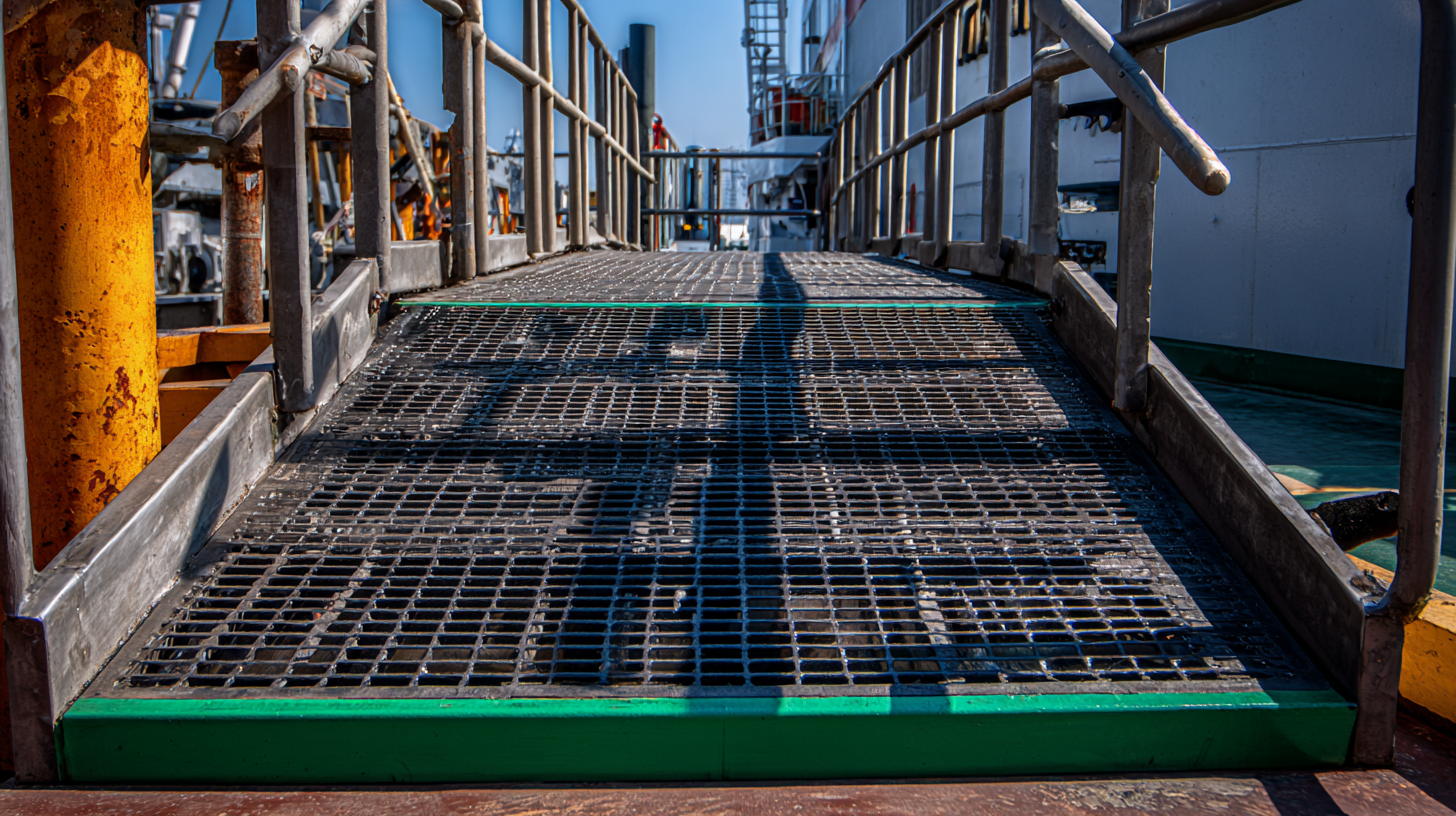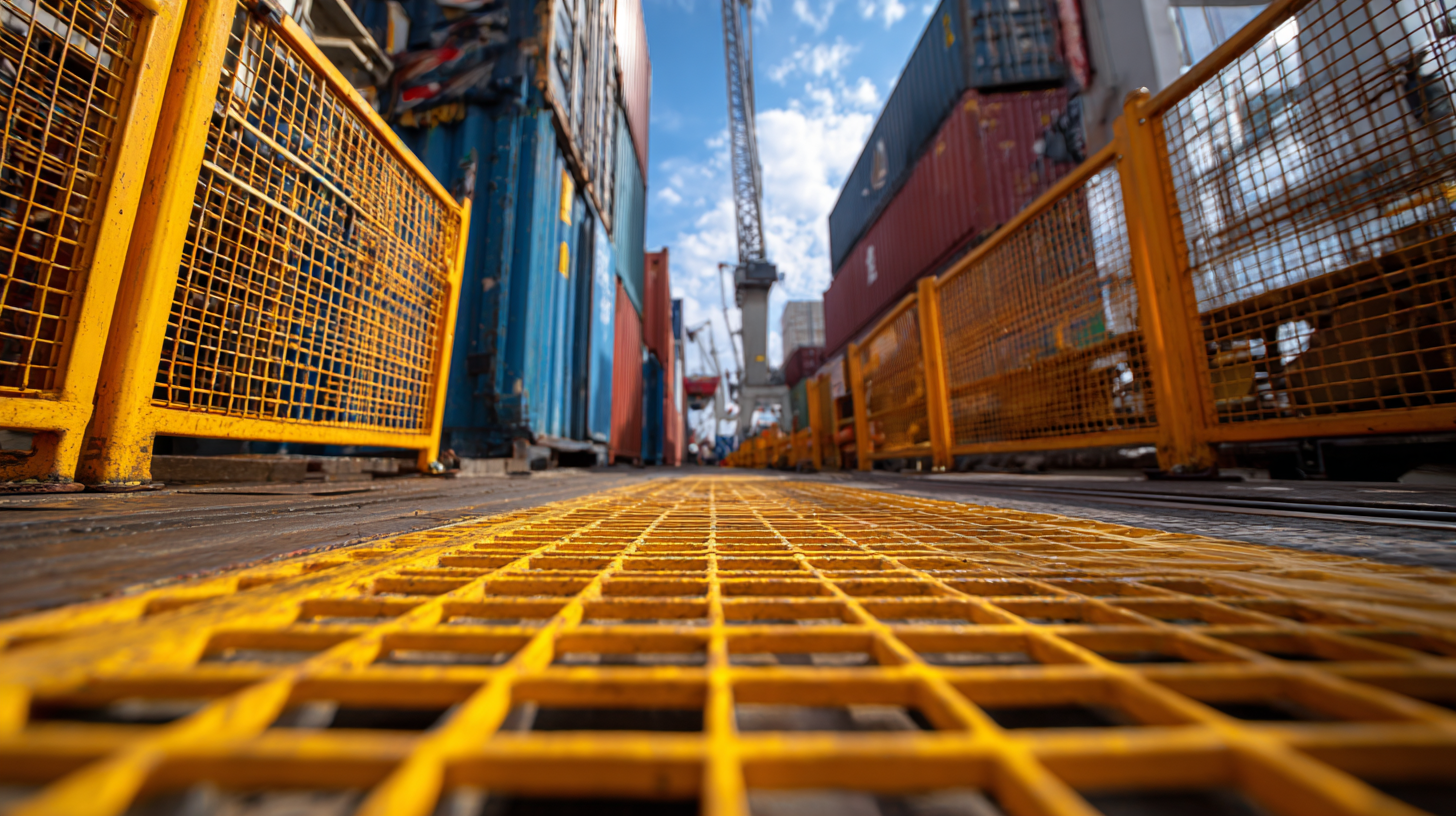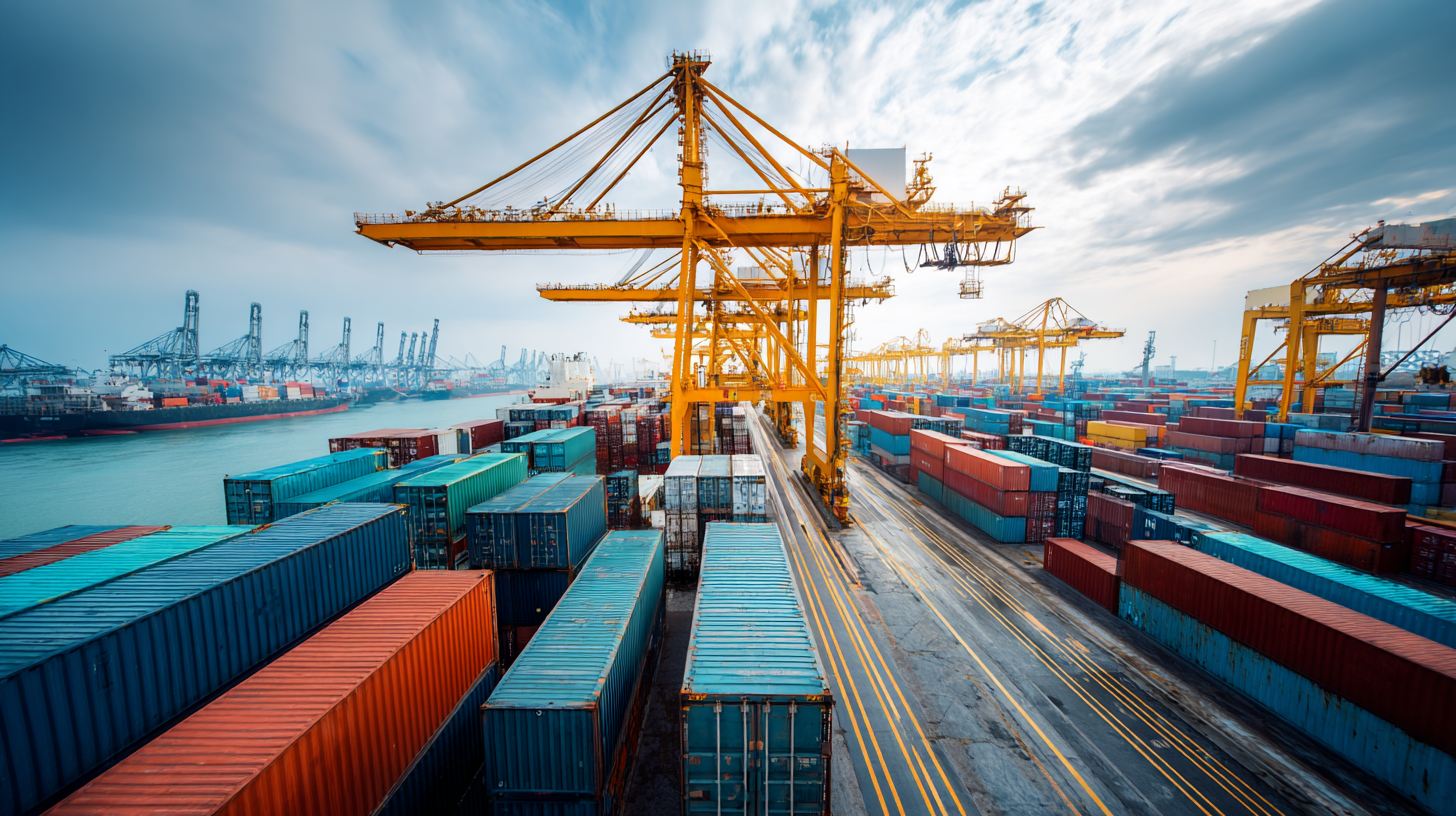Navigating Import Export Certifications for the Best Adjustable Step You Need
In today's global marketplace, the demand for high-quality, innovative products is at an all-time high, particularly for versatile tools that enhance everyday living. One such product gaining immense popularity is the Adjustable Step, a practical solution for various tasks, from home improvement to commercial applications.
 As consumers become increasingly aware of manufacturing standards and certifications, navigating the complexities of import-export regulations and certifications for these Adjustable Steps can be daunting. This blog aims to demystify the certification process, ensuring that your Adjustable Step not only meets the high expectations of quality and reliability but also adheres to global standards.
As consumers become increasingly aware of manufacturing standards and certifications, navigating the complexities of import-export regulations and certifications for these Adjustable Steps can be daunting. This blog aims to demystify the certification process, ensuring that your Adjustable Step not only meets the high expectations of quality and reliability but also adheres to global standards.
By understanding the significance of certifications, we can make informed decisions and confidently embrace the "Made in China" ethos that emphasizes quality assurance and international appeal.
Join us as we explore the essential certifications needed to introduce the best Adjustable Step to your market.
The Importance of Import Export Certifications in Adjustable Step Manufacturing
In the world of adjustable step manufacturing, import and export certifications play a crucial role in ensuring product quality and regulatory compliance. These certifications validate that the products meet international standards, which is essential for gaining trust in global markets. When manufacturers obtain the necessary certifications, they not only enhance their credibility but also facilitate smoother transactions across borders. This is particularly important for adjustable steps, which must meet specific safety and durability requirements to appeal to both consumers and retailers.
Moreover, navigating the complex landscape of import and export certifications can significantly impact a company's competitive edge. With the right certifications, manufacturers can access new markets, improve their supply chain efficiency, and ultimately increase their profitability. Adhering to these regulations demonstrates a commitment to quality and safety, which resonates with consumers who are increasingly concerned about the integrity of the products they purchase. Thus, understanding and prioritizing import-export certifications is not just a bureaucratic necessity; it is a strategic asset that can drive business growth in the adjustable step industry.

Understanding the Key Certifications for Quality Assurance in Import Export
When engaging in international trade, understanding the essential certifications is crucial for ensuring the quality and compliance of adjustable steps. According to a report by the International Trade Centre, nearly 70% of businesses cite certification processes as a significant hurdle in import-export activities. Key certifications serve as critical indicators of quality assurance, impacting product acceptance in various markets. For adjustable steps, certifications such as ISO 9001, which emphasizes quality management systems, and ANSI standards that provide safety guidelines, are paramount.
Moreover, companies often benefit from compliance with the ASTM International standards, which specify performance criteria for height-adjustable equipment. A study by the Council of Supply Chain Management Professionals indicates that products meeting these certifications see a 25% increase in market competitiveness. By prioritizing these key certifications, businesses can not only reassure customers about the reliability of their adjustable steps but also streamline their entry into new markets. Ultimately, navigating the complex landscape of import-export certifications can set a company apart in a crowded marketplace.
Navigating the Certification Process for Adjustable Steps: A Comprehensive Guide
Navigating the certification process for adjustable steps can seem daunting, but understanding the key requirements can simplify the journey. Different regions have specific regulations concerning safety standards, which are crucial to ensuring that your adjustable steps meet industry criteria. Initially, it’s important to familiarize yourself with the standards set by organizations such as ANSI (American National Standards Institute) or ISO (International Organization for Standardization). These standards often dictate the materials, weight capacity, and design features necessary to secure certification.
Once you’ve identified the relevant standards, the next step is to gather documentation that demonstrates compliance. This may include testing results from accredited labs, technical drawings, and manufacturing procedures. Engaging with certification bodies early can facilitate a smoother process, as they can provide insights into required documentation and testing protocols. Remember, the certification process is not just a regulatory hurdle; it’s an opportunity to enhance your product's credibility and ensure safety for your customers. By being thorough and proactive, you can navigate this essential aspect of product development with confidence.
Navigating the Certification Process for Adjustable Steps
Choosing the Right Chinese Manufacturer: Credentials and Certifications Matter
When considering the best adjustable step for your needs, selecting the right Chinese manufacturer is crucial. Credentials and certifications can significantly influence product quality and safety. Start by verifying the manufacturer's ISO certifications, which can indicate adherence to international quality management standards. Look for specific product certifications, such as CE or RoHS, which ensure compliance with European regulations for safety and environmental responsibility. This way, you can rest assured that the adjustable steps you source are not only durable but also meet the necessary safety requirements.

Tips for evaluating manufacturers include requesting samples and checking their production facilities. It's advisable to conduct a factory audit to assess their capabilities and working conditions. Additionally, consider their customer service responsiveness; a manufacturer that values communication is more likely to address any concerns or follow up on orders efficiently. Lastly, reading customer reviews and testimonials can provide insight into the reliability and performance of their products, helping you make an informed decision on the right adjustable step for your needs.
How Import Export Certifications Impact Global Trade of Adjustable Steps
Navigating the complex world of import-export certifications is crucial for businesses dealing with adjustable steps in global trade. These certifications serve as essential documents that validate the safety, quality, and compliance of products, ensuring they meet international standards. For adjustable steps, which may vary significantly between regions, having the right certifications can open doors to new markets while minimizing the risk of legal complications.
**Tip:** Always research the specific certifications required in your target market before exporting adjustable steps. Different countries have varying regulations, and staying informed will save you time and money.
Additionally, proper certifications can enhance your brand credibility, making customers more inclined to choose your products over competitors. This not only fosters trust but can also improve your marketing strategies by highlighting your commitment to quality and safety standards.
**Tip:** Consider partnering with a local expert or consultancy in the trade markets you aim to enter. They can provide insights on navigating the certification process and ensuring compliance, which can ultimately streamline your export efforts.
